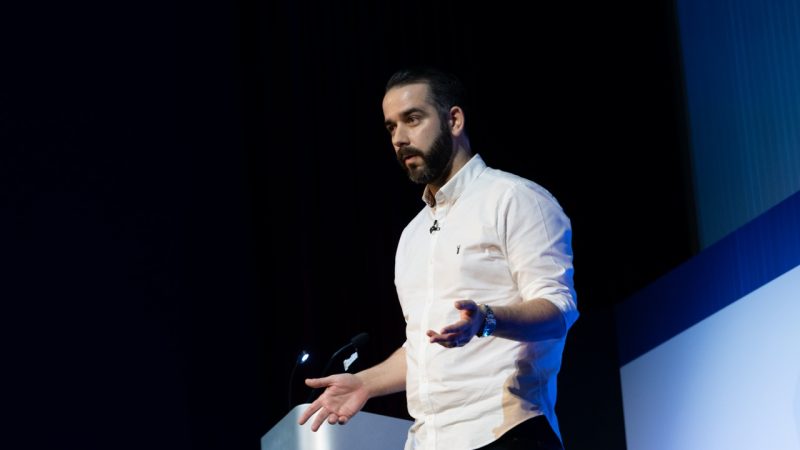Microsoft is partnering with leading engine OEMs like Rolls Royce and GE to bring better performance insights through its Azure cloud computing technology.
In a keynote at last week’s Predictive Aircraft Maintenance (PAM) Conference, Daniel Williams, the tech giant’s UK aviation chief technology officer, said gains are already being made.
He said cloud computing and Artificial Intelligence (AI) are already being adopted in many sector, as well as aviation, helping companies to make sense of the data they collect.
In aviation Rolls Royce is one of Microsoft’s flagship customers, the OEM using its technology to monitor the performance of the 1,300 engines currently in operation.
Williams said, using Azure, the manufacturer has the ability to run up to one hundred billion simulated flights each week to improve their engine performance and data models.
“Building the solution on Azure enabled them to simulate flights for testing at scale,” said Williams.
“Rolls Royce has 1,300 engines globally but they had a scenario where they were collecting too much data and did not know what to do with it.
“We provide a much better insights perspective of the data they are capturing. This reduces AOGs (Aircraft On the Ground), optimises fuel consumption efficiency or engine use and cleaning.”
The Microsoft technology also allows Rolls Royce to optimise inventory forecasts for more efficient back-of-house operations. This is allowing the firm to provide information back to airline customers.
GE Digital has worked with Microsoft on component analytics to “cut through their data” to “offer different services”, said Williams.
This is allowing the OEM to provide better predictions and decision-making to minimise things like fuel waste and to improve fight reliability.
Microsoft is also working in partnership with Airbus on mixed reality headsets using HoloLens for maintenance engineers for training without the need for a physical aircraft.
Williams said this shows that there is “a business case” for this sort of technology beyond gaming. The tech means engineers can work hand-free because they no longer need a physical manual.
Concerns about the sharing of data and ethics are being taken seriously by Microsoft, added Williams. “We are, I like to think, a leader in this space.”
He said no company should be loading their data or IP into a public large language platform like ChatGPT, but should spin up a private unique version.
“We are trying to set everyone up for what we think are impending regulations. All that we do is underpinned by transparency and accountability.
“It is important to note, going through this, that things are going to be changing and their needs to be adaptability throughout.”
Microsoft devised original AI standards in 2019, but Williams said these were torn up and rewritten in 2022 because advances in the tech meant they no longer applied.
And he reassured delegates that the integrity of their data was guaranteed. “Your data is your data, it’s not our data,” he said.
“Any analytics, any output as part of that particular dataset will not be leveraged in any shape or form in the foundational model.
“Only you can benefit from what’s coming as output or what’s leveraged through the use of AI.”


